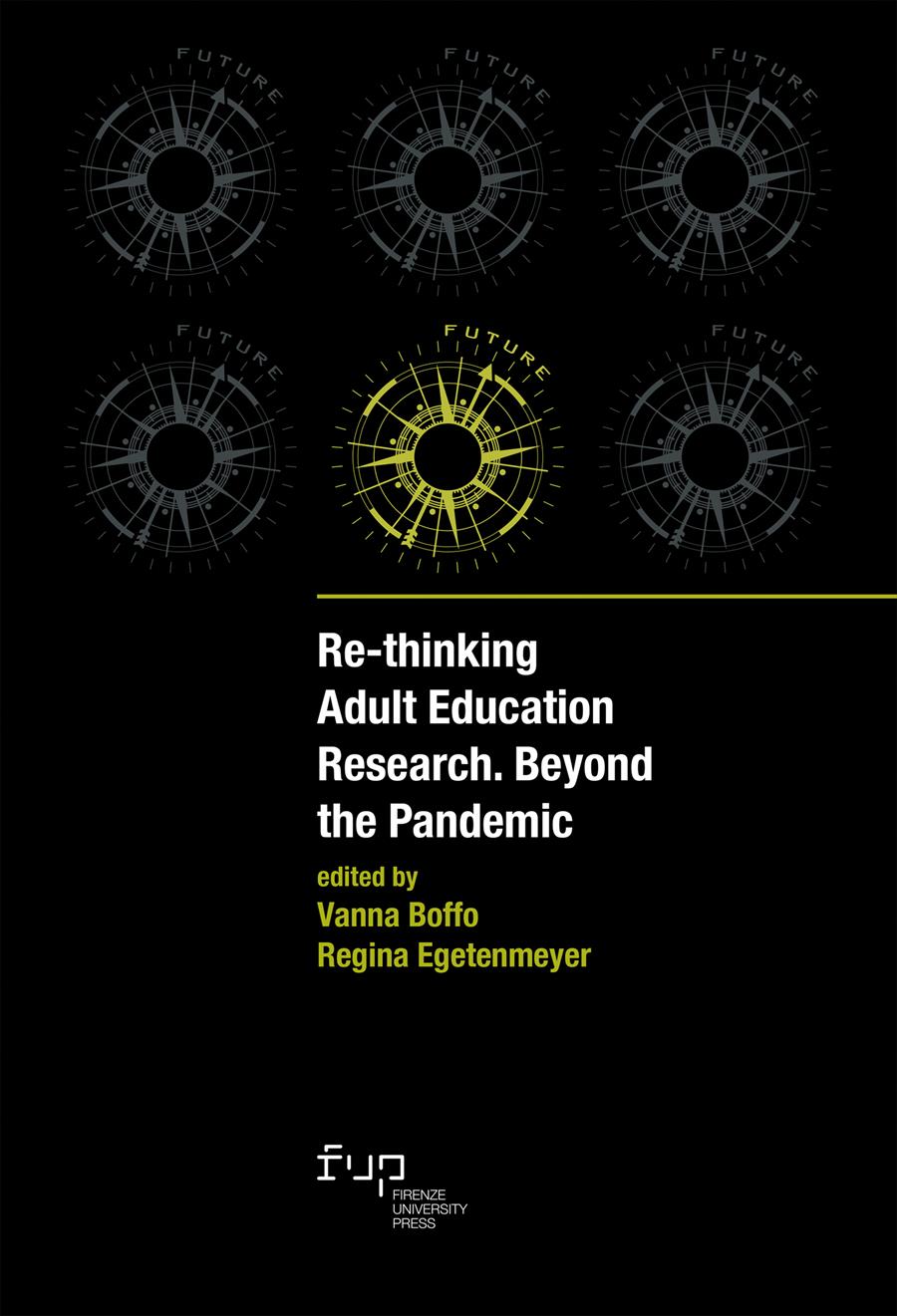- Re-thinking Adult Education Research. Beyond the Pandemic
- Edited by Vanna Boffo, Regina Egetenmeyer
Learning in Cities to Create Sustainable Societies
- Roberta Piazza
- © 2023 Author(s) |
- CC BY 4.0
- DOI: 10.36253/979-12-215-0151-3.20
Cities play a leading role in addressing many of the global challenges of the 21st century. They are an important part of the 2030 Agenda for sustainable development, which assigns them multiple tasks. Cities should be committed to reducing the ecological footprint and to creating solutions that respond in a differentiated way to the challenges and opportunities in different areas of the world. The sustainable development strategies of cities have determined the definition of different urban models, focused on the need to offer citizens well-being and innovation. This contribution presents the model of learning cities (LC), cities that put learning and education at the heart of their strategies. The paper identifies some of the possible strategies to make cities more responsive to the learning needs arising from the recent pandemic crisis.
- Keywords:
- City,
- COVID-19,
- Governance,
- Learning,
- Sustainability,
University of Catania, Italy - ORCID: 0000-0002-0478-9577
- Angelidou, Margarita. 2015. “Smart Cities: A Conjuncture of Four Forces.” Cities 47: 95-106. DOI: 10.1016/j.cities.2015.05.004
- Atchoarena, David, and Alex Howells. 2021. “Advancing Learning Cities: Lifelong Learning and the Creation of a Learning Society.” In Powering a Learning Society During an Age of Disruption, edited by Sungsup Ra, Shanti Jagannathan, and Rupert Maclean, 165-80. Singapore: Springer.
- Baltaci Goktalay, Sehnaz. 2021. “Adult Education in Times of the COVID-19 Pandemic: Inequalities, Changes, and Resilience.” EPALE. <https://epale.ec.europa.eu/sv/node/170110> (2023-03-15).
- Bengtsson, Jarl. 2013. “National Strategies for Implementing Lifelong Learning (LLL) – the Gap between Policy and Reality: An International Perspective.” International Review of Education 59 (3): 343-52.
- Faris, Ron, and Wayne Peterson. 2000. Learning-Based Community Development: Lessons Learned for British Columbia. Victoria: Ministry of Community Development, Cooperatives and Volunteers.
- Field, John. 2008. Well-being and Happiness: IFLL Thematic Paper 4. Leicester: NIACE.
- Kearns, Peter. 2012a. Living and Learning in EcCoWell Cities. A Clarifying Working Paper. PASCAL International Exchanges (PIE). <http://pie.pascalobservatory.org/sites/default/files/living_and_learning_in_eccowell_cities_-_rev2.pdf> (2023-03-15).
- Kearns, Peter. 2012b. “Living and Learning in EcCoWell Cities: Discussion Paper.” Australian Journal of Adult Learning 52 (2): 392-96.
- Longworth, Norman. 1999. Making Lifelong Learning Work. Learning Cities for a Learning Century. London: Kogan Page.
- Longworth, Norman, and Michael Osborne. 2010. “Six Ages towards a Learning Region − A Retrospective.” European Journal of Education 45 (3): 368-401.
- Martínez, Lina, and John R. Short. 2021. “The Pandemic City: Urban Issues in the Time of COVID-19.” Sustainability 13 (6): 3295. DOI: 10.3390/su13063295
- OECD. 1993. City Strategies for Lifelong Learning. A CERI/OECD study prepared for the Congress on Educating Cities. Gothenburg: OECD.
- OECD. 2011. Towards Green Growth. Paris: OECD.
- OECD. 2018. Building Resilient Cities An Assessment of Disaster Risk Management Policies in Southeast Asia. Paris:. OECD.
- Oksanen, Riita. 2000. “Sector-wide Approaches as a Framework for Development Partnerships.” The International Forestry Review 2 (3): 232-35.
- PASCAL International Observatory. <http://pascalobservatory.org/> (2023-03-15).
- Piazza, Roberta. 2015. “Learning city: la sfida dell’inclusione sociale.” In Pedagogia militante. Diritti, culture, territori, edited by Maria Tomarchio, and Simonetta Ulivieri, 221-33. Pisa: ETS.
- Plumb Donovan, Leverman Andrew, and Robert McRay. 2006. “The Learning City in a Planet of Slums.” Studies in Continuing Education 29 (1): 37-50.
- Robin, Enora, Chazal, Clémentine, Acuto, Michele, and Rocio Carrero. 2019. “(Un)learning the City through Crisis: Lessons from Cape Town.” Oxford Review of Education 45 (2): 242-57. DOI: 10.1080/03054985.2018.1551197
- Sabherwal, Anandita, Ballew, Matthew T., van der Linden, Sander, Gustafson, Abel, Goldberg, Matthew H., Maibach, Edward W., Kotcher, John E., Swim, Janet K., Rosenthal, Seth A., and Anthony Leiserowitz. 2021. “The Greta Thunberg Effect: Familiarity with Greta Thunberg Predicts Intentions to Engage in Climate Activism in the United States.” Journal of Applied Social Psychology 51 (4): 321-33. DOI: 10.1111/jasp.12737
- Tibitt, John. 2014. Why Learning is Central to City Futures - A Policy Briefing from PASCAL International Observatory. <http://pascalobservatory.org/pascalnow/pascal-activities/news/why-learning-central-city-futures-policy-briefing-pascal-internatio> (2023-03-15).
- UNESCO. 2016. Education for People and Planet. Creating Sustainable Futures for All. Global Education. Monitoring Report 2016. Paris: UNESCO. <http://unesdoc.unesco.org/images/0024/002457/245752e.pdf> (2023-03-15).
- UNESCO. Institute for Lifelong Learning (UIL). 2013. Terms of Reference for Establishing the International Platform for Learning Cities. Hamburg: UNESCO Institute for Lifelong Learning.
- UNESCO. Institute for Lifelong Learning (UIL). 2017. Learning Cities and the SDGs: A Guide to Action. Hamburg: UIL, UNESCO Global Network of Learning Cities. <https://uil.unesco.org/lifelong-learning/learning-cities/learning-cities-and-sdgs-guide-action> (2023-03-15).
- UNESCO. Institute for Lifelong Learning (UIL). 2020. Embracing a Culture of Lifelong Learning: Contribution to the Futures of Education Initiative. Hamburg: UNESCO Global Network of Learning Cities. <https://unesdoc.unesco.org/ ark:/48223/pf0000374112> (2023-03-15).
- UN Habitat. 2022. World Cities Report 2022. Envisaging the Future of Cities. Nairobi, Kenya: United Nations.
- United Nations. 2015. Trasforming our World: The 2030 Agenda for Sustainable Development. United Nations. <https://sdgs.un.org/sites/default/files/publications/21252030%20Agenda%20for%20Sustainable%20Development%20web.pdf> (2023-03-15).
- United Nations. 2020a. World Social Report 2020: Inequality in a Rapidly Changing World. United Nations. <https://www.un.org/development/desa/dspd/wp-content/uploads/sites/22/2020/01/World-Social-Report-2020-FullReport.pdf> (2023-03-15).
- United Nations. 2020b. Education during COVID-19 and beyond. United Nations. <https://www.un.org/development/desa/dspd/wp-content/uploads/sites/22/2020/08/sg_policy_brief_covid-19_and_education_august_2020.pdf> (2023-03-15).
- Willis, Peter, McKenzie, Stephen, and Roger Harris, edited by. 2008. Rethinking Work and Learning: Adult and Vocational Education for Social Sustainability. Berlin: Springer Science & Business Media (Technical and Vocational Education and Training Series 9).
- World Health Organization. 1998. “Health Promotion Glossary.” <https://www.who.int/publications/i/item/WHO-HPR-HEP-98.1> (2023-03-15).
Chapter Information
Chapter Title
Learning in Cities to Create Sustainable Societies
Authors
Roberta Piazza
Language
English
DOI
10.36253/979-12-215-0151-3.20
Peer Reviewed
Publication Year
2023
Copyright Information
© 2023 Author(s)
Content License
Metadata License
Bibliographic Information
Book Title
Re-thinking Adult Education Research. Beyond the Pandemic
Editors
Vanna Boffo, Regina Egetenmeyer
Peer Reviewed
Number of Pages
284
Publication Year
2023
Copyright Information
© 2023 Author(s)
Content License
Metadata License
Publisher Name
Firenze University Press
DOI
10.36253/979-12-215-0151-3
ISBN Print
979-12-215-0150-6
eISBN (pdf)
979-12-215-0151-3
eISBN (xml)
979-12-215-0152-0
Series Title
Studies on Adult Learning and Education
Series ISSN
2704-596X
Series E-ISSN
2704-5781
